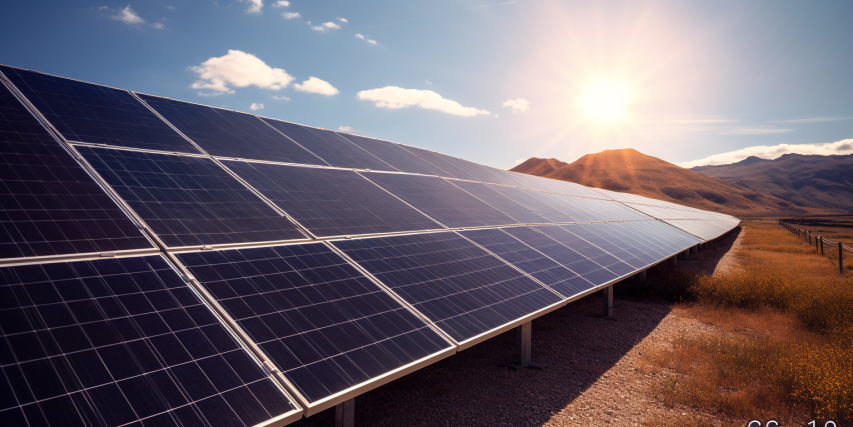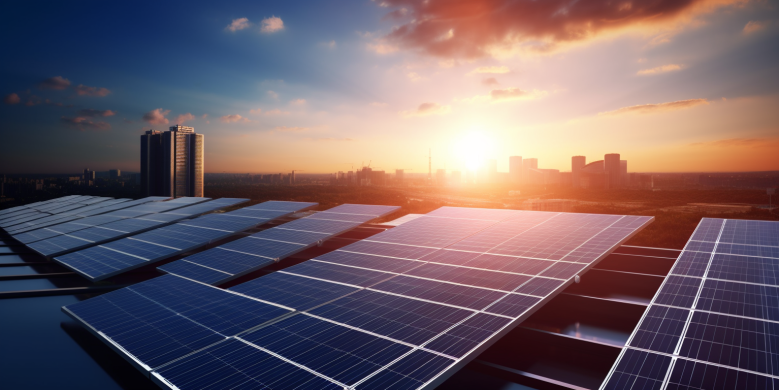
Solar energy is an increasingly popular and sustainable choice for meeting our energy needs. With its numerous advantages, it has the potential to revolutionize the way we generate and consume electricity.
Harnessing the power of the sun, solar energy offers a clean and renewable source of power that does not deplete natural resources or contribute to greenhouse gas emissions. In addition, solar energy systems require minimal water usage compared to traditional power plants, helping to conserve this precious resource.
Installing solar panels can also lead to significant financial benefits, reducing dependence on the grid and resulting in lower electricity bills. Furthermore, advancements in battery technology have improved solar energy storage, making it more reliable even during periods of low sunlight.
While there are some disadvantages, such as the initial high cost of installation and the dependence on sunlight, community solar projects offer a viable alternative for those who want to benefit from solar energy without the need for individual ownership and maintenance.
Overall, solar energy presents a sustainable and promising solution for our energy needs.
Key Takeaways
- Solar energy is a renewable energy source that doesn’t use up natural resources.
- Solar energy is clean and doesn’t produce carbon emissions or greenhouse gases.
- Installing a solar energy system can reduce reliance on the grid and lower electricity bills.
- Solar panels have low maintenance costs and an average lifespan of 25 years.
Advantages
One advantage of solar energy is that it is a renewable energy source that does not deplete natural resources and produces no carbon emissions or greenhouse gases.
Solar energy efficiency has improved significantly over the years, making it a viable and sustainable choice for generating electricity.
Solar panels have an average lifespan of 25 years, providing a long-term solution for energy generation.
Additionally, solar energy systems can generate electricity in any climate, although cloudy days may reduce electricity production.
Despite the high initial cost of installing solar panels, leasing options are available to help reduce the upfront cost.
Moreover, solar panels have low maintenance costs, further contributing to their sustainability.
Overall, solar energy offers a clean and efficient alternative to traditional energy sources, promoting environmental preservation and reducing reliance on fossil fuels.

Disadvantages
Despite the potential benefits of harnessing sunlight for electricity generation, it is crucial to acknowledge the limitations and challenges associated with the utilization of solar power.
-
High initial cost: One of the main disadvantages of solar energy is the high upfront cost of installing solar panels. The cost of purchasing and installing the panels, as well as the necessary equipment and wiring, can be a significant investment for homeowners and businesses.
-
Dependence on sunlight: Solar panels rely on sunlight to generate electricity, which means their efficiency is reduced on cloudy days, during storms, and at night. This dependence on sunlight limits the consistent production of electricity, especially in regions with less sunlight.
-
Vulnerability to storms: Solar panels can be vulnerable to extreme weather events such as hailstorms, hurricanes, or heavy snowfall. These events can damage or destroy the panels, requiring expensive repairs or replacements. Additionally, if the power grid goes down during a storm, solar panels without battery storage cannot provide electricity.

Community Solar
Community solar projects offer a collective and accessible approach to utilizing sunlight for electricity generation. These projects allow community engagement by providing renewable energy options to individuals who may not be able to install solar panels on their own properties.
Participants in community solar programs can receive credits for the electricity generated by the solar facility, which helps lower their electricity bills and reduce their carbon footprint. This approach also eliminates the need for individuals to buy and maintain their own solar energy systems, making solar energy more accessible to a wider range of people.
Community solar projects promote renewable energy adoption on a larger scale and contribute to the overall reduction of greenhouse gas emissions. By encouraging community involvement, these projects not only provide economic benefits but also help create a more sustainable future for all.

